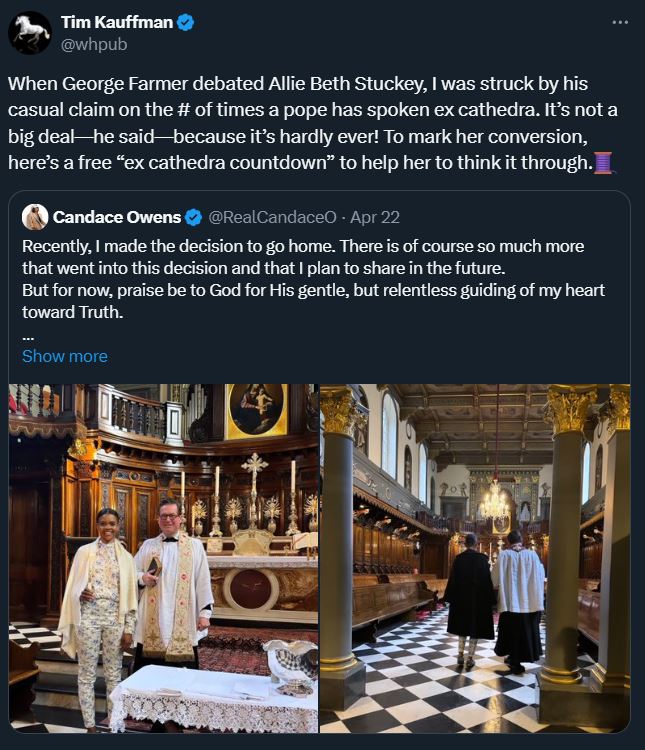One of the core doctrines of Roman Catholicism is that of Infallibility. It is quite common for Catholics to tell Protestants that they do not understand Infallibility because they are not Catholics. This is the genetic fallacy.
The reality is that Protestants understand infallibility better than Roman Catholics do. Yes, Protestants understand the Roman Catholic doctrine better than Roman Catholics. But, how can this be?
The explanation is simple. Roman Catholics exclude—as a matter of dogma and faith—a number of the possible explanations of how infallibility works. Protestants have a greater range of possible explanations, including all of the Roman Catholic explanations, plus more. As it turns out, Roman Catholics have excluded from possibility the actual correct explanation for Infallibility. Thus, almost no Roman Catholic understands it. But (some) Protestants do.
If you have ever interacted with a Roman Catholic, you have no doubt run into the “You Don’t Understand Infallibility” wall which the Roman Catholic erects to protect himself from the realization that he himself does not—and cannot—understand infallibility.
Every conversation on infallibility essentially reduces to this:
Catholic:
Protestant:
Catholic:
See exhibits A & B, below.
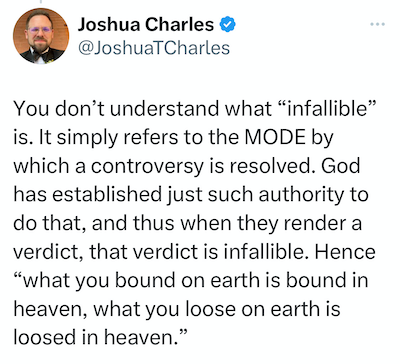

To edify the saints (and to walk Catholics to their first day of infallibility school), I provide at no charge this public service: an X class on Infallibility.
Within the family of infallibility, there exist two genera: Ordinary and Extraordinary Magisterial Infallibility.

Within the genera of Magisterial Infallibility, there exist three species of infallibility:
Ordinary: bishops, in union with the pope, in their day-to-day instruction of the flock.
Extraordinary: Ecumenical Councils and Ex Cathedra (“from the chair”) statements of the Pope.
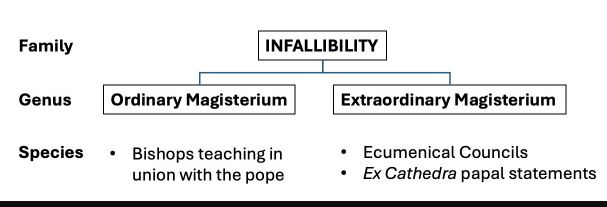
So difficult is it to know if the Ordinary Magisterium has taught infallibly, the Catholic Encyclopedia dismisses it: It is “theoretically true” that the Ordinary Magisterium can be definitively infallible, but “in practice” it’s impossible to prove.
See: Patrick Toner, “Infallibility.” Catholic Encyclopedia, Vol 7. (1910)
This is why both clergy & lay have such a difficult time agreeing on ordinary magisterial infallibility. An online article from The Fatima Organization, “Can the Ordinary Magisterium Err?” says…
…and another here on twitter insists it is not (Exhibits C & D, below).
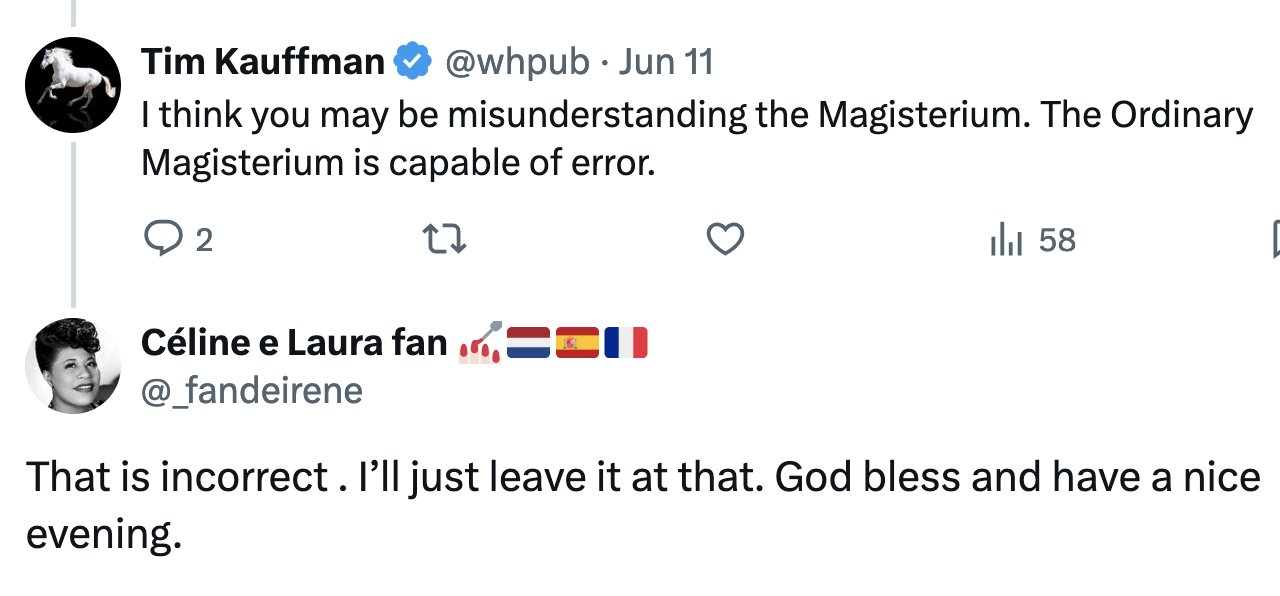

We can hardly blame exasperated Roman Catholic philosopher Timothy Gordon (Exhibit E) who admits what every Protestant already knows:
Thus, the Catholic Encyclopedia demurs, focusing only on Extraordinary Magisterial infallibility:
And thus, so shall we.
Catholics are obligated to believe the infallible teachings of Ecumenical Councils. But … nobody is quite sure which ones are Ecumenical. Bellarmine didn’t think Basle (AD 1431) was Ecumenical. Excommunicated Archbishop Viganò doesn’t believe Vatican II was Ecumenical.
Fifty other clergy, scholars & journalists agreed with him on that (Exhibit F). RadTrads wonder as well. Additionally,
The cause of this confusion? While Ecumenical Councils are allegedly “infallible,” there is no infallible list of such Councils. According to Canon Lawyer Nedungatt, “no authoritative church magisterium [has] established” an authoritative list. Every Roman Catholic must compile his own.
This leads to much confusion. E.g., provincial or regional councils are not infallible and thus do not publish infallible decrees. But that does not prevent some Catholics from imbuing their favorite provincial council with Ecumenical authority.
One Roman Catholic on X recently claimed infallible knowledge of the canon of Scripture from the provincial Council of Rome (AD 382), claiming it was Ecumenical (Exhibit F). The Encyclopedia says otherwise:
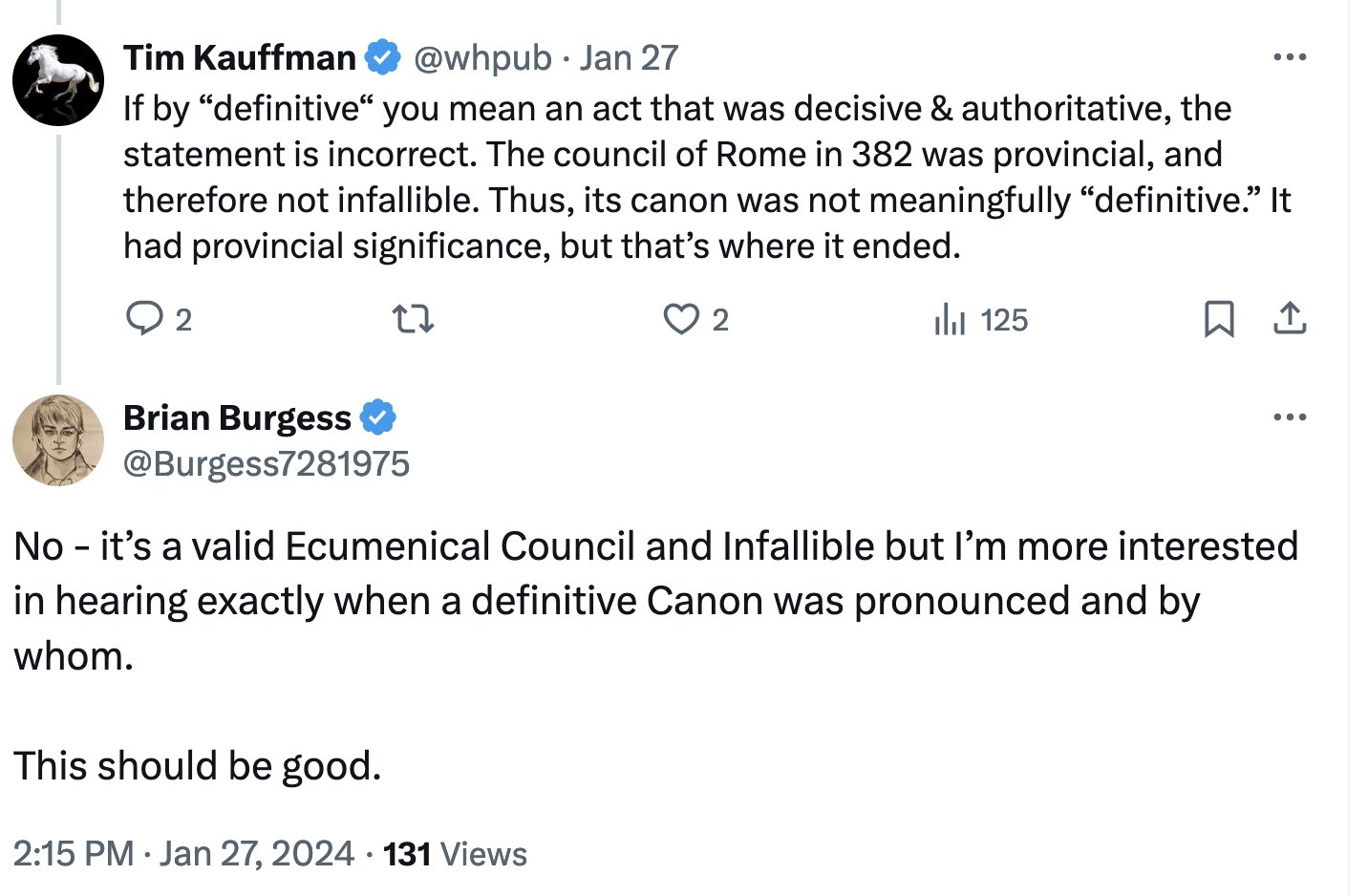
Well, if the Ordinary Magisterium is only “theoretically” infallible, and the Extraordinary Magisterium hasn’t given a definitive list of Ecumenical Councils—leaving Roman Catholics to come up with their own—the only remaining organ of Extraordinary infallibility is the Pope.
But that is problematic because nobody seems to know when, why or how a pope speaks infallibly. Karl Keating says the pope teaches infallibly:
But Scott Hahn’s opinion is the exact opposite:
Whom shall we believe? Hahn or Keating?
And how do we know if the Pope has spoken ex cathedra? Scott Butler says it’s easy:
But others disagree.
The Catholic Encyclopedia says there are 4 criteria, but Fr. William Most says there are only two:
Is it any wonder there is no infallible list?
As I demonstrated in my response to @RealCandaceO, nobody knows how many times the pope has spoken ex cathedra, which is why there are so many divergent & fallible opinions from Catholics on a definitive number ex cathedra papal statements (Exhibit G).
This led to a hilarious interaction with Catholic Answers’ Al Fr. Justin who said:
Then upon reflection:
Small wonder that Catholic apologist Robert Sungenis, unable to figure out ex cathedra, threw up his hands:
Such confusion is exacerbated by the fact that Catholics don’t realize that in an ex cathedra statement, only the dogmatic definition is infallible, leading to @Burgess7281975‘s mistake of thinking that Pius IX had declared “ex cathedra” that Mary is Titular queen of heaven!
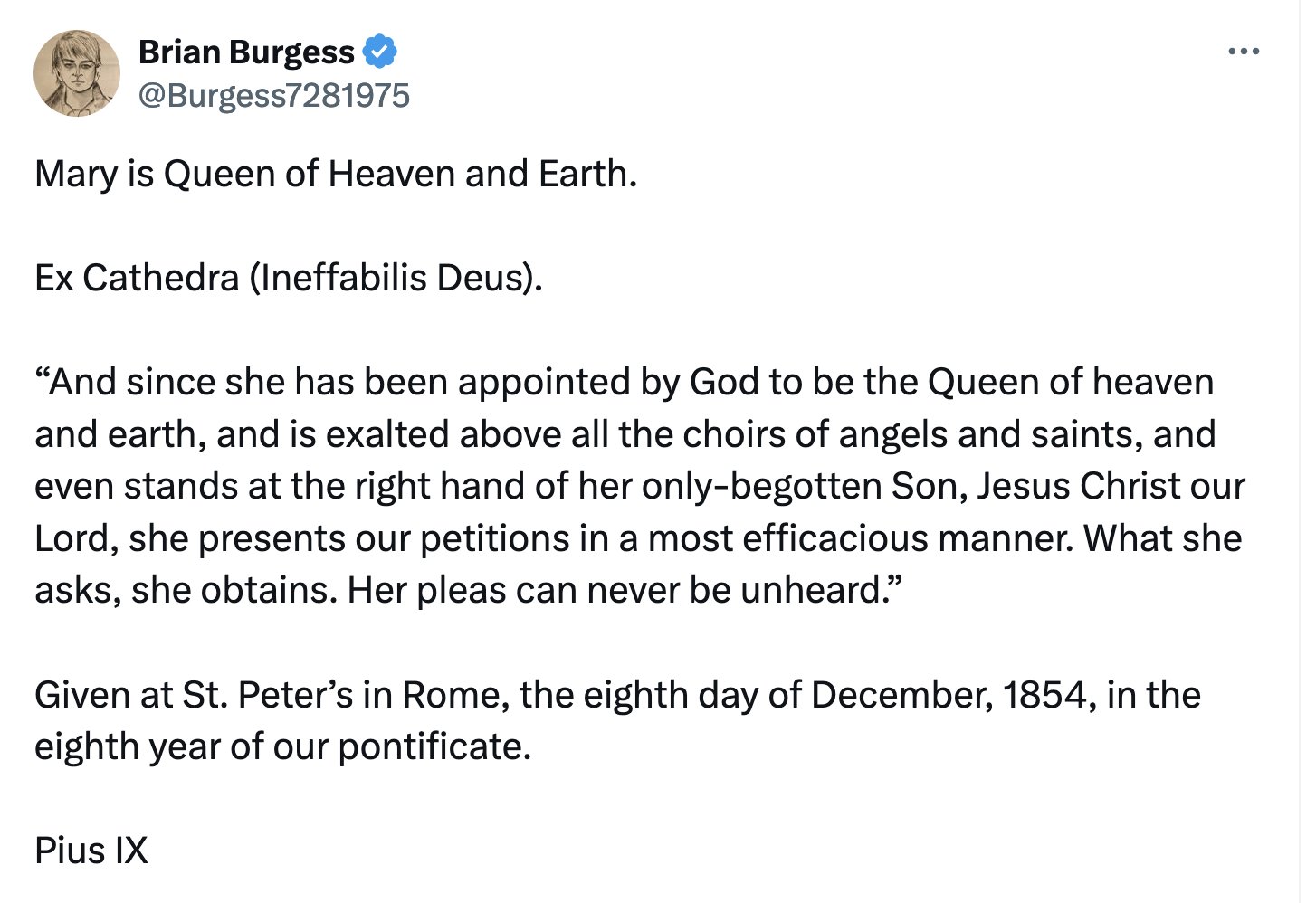
But the Catholic Encyclopedia says otherwise:
So here is “Infallibility” in a nutshell:
The Ordinary Magisterium is theoretically infallible but no one even knows what’s in it. The Extraordinary Magisterium has provided neither an infallible list of Ecumenical Councils nor such a list of ex cathedra papal statements.
Catholics on X will confidently pontificate about this teaching or that, one council or another, one allegedly ex cathedra statement or another, never realizing that their own confusion is because it’s they, not Protestants, who “don’t understand infallibility”! Now you know.

